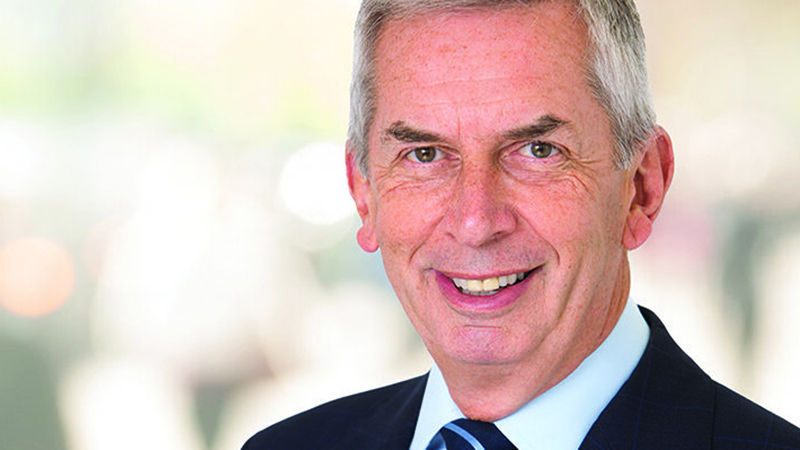Fundsmith Equity manager Terry Smith accused Paypal of being “intent on snatching defeat from the jaws of victory” in his thirteenth annual letter to shareholders, adding that the company had squandered its leading position in online payments.
Paypal was the second largest detractor to the fund over the course of the year, contributing to its -13.8% return across the 12 months. It trailed the MSCI World index by six percentage points.
Smith (pictured) sold off Paypal in December, having held the stock since it split from eBay in 2015, and he was forthcoming in his criticism of the firm, namely for its lack of engagement with Fundsmith: “We tried to engage with Paypal as we identified, seemingly long before the management, that their lack of engagement with new customers was a problem, as was cost control, and that their acquisitions were value destroying.”
He added: “A representative of the board kindly told us they would think about that. Whilst they were allegedly thinking about it, Elliott Management bought a stake which led to them being given a board seat and an information sharing agreement.”
No such favour was offered to Fundsmith, and Smith levelled a similar jibe at Unilever, as he did in his last shareholder letter.
He lamented that after Nelson Peltz’s Trian Partners announced its stake in Unilever, Peltz was invited to join the board, while Fundsmith heard nothing from the company during its first eight years as a shareholder.
Smith added: “I don’t know how long Trian held its stake before Mr Peltz was invited to join the board or how big that stake was, but I would guess that they held it for far fewer months than we have held it in terms of years.”
Despite his frustration at these companies, Fundsmith’s biggest detractor was Meta, contributing -3.3% to the portfolio’s value, while Microsoft, IDEXX, and Amazon were third, fourth, and fifth in that list, each taking off more than 1.5%.
The fund had a relatively low turnover during 2022, staying true to the ‘Do Nothing’ portion of its investment strategy. Besides selling off Paypal, it ditched stakes in Johnson & Johnson, Starbucks, Kone, and Intuit.
Smith bought into Mettler-Toledo, Adobe, Otis, and Apple.
The best performing stocks were largely defensive, with Novo Nordisk adding 2.1%, Philip Norris 1.1%, and Pepsi 0.7%
AJ Bell’s Laith Khalaf noted that 2022 was by far the worst calendar year of performance the fund has endured since launch in 2010, both in absolute terms and relative to the global stock market.
He said: “Higher inflation and rising interest rates have prompted the market to turn against the growth stocks favoured by Smith and other fund managers with a similar investment philosophy.”
Khalaf did, however, acknowledge the inevitability of such dips, pointing out that all active managers will endure such periods of underperformance and particularly those like Smith, who have a distinctive style bias expressed through a concentrated portfolio.
He added: “Fundsmith investors shouldn’t therefore bank on an immediate return to the glory days of yore. Terry Smith has plenty of credit in the bank for past performance, and in the long run his simple, well-grounded investment philosophy is likely to deliver results. But Fundsmith investors may need to exercise more patience than they have needed to up to this point.”
£36m payout
Despite 2022 being a year to forget in terms of performance for Fundsmith, the firm’s annual report revealed rising profits, and a growing pay out for “the member with the largest entitlement”, believed to be Smith.
According to Companies House, he received £36.4m for 12 months to 31 March 2022, up from £35.7m the year before, while profits for the wider firm grew marginally to £58.4m.
Fundsmith Investment Services, the Mauritius-based arm of the company, received £252m from Fundsmith during the 12 months, the cost of which was placed under administrative expenses. While profit after tax increased by under £500,000, administrative expenses increased by around £78m.










